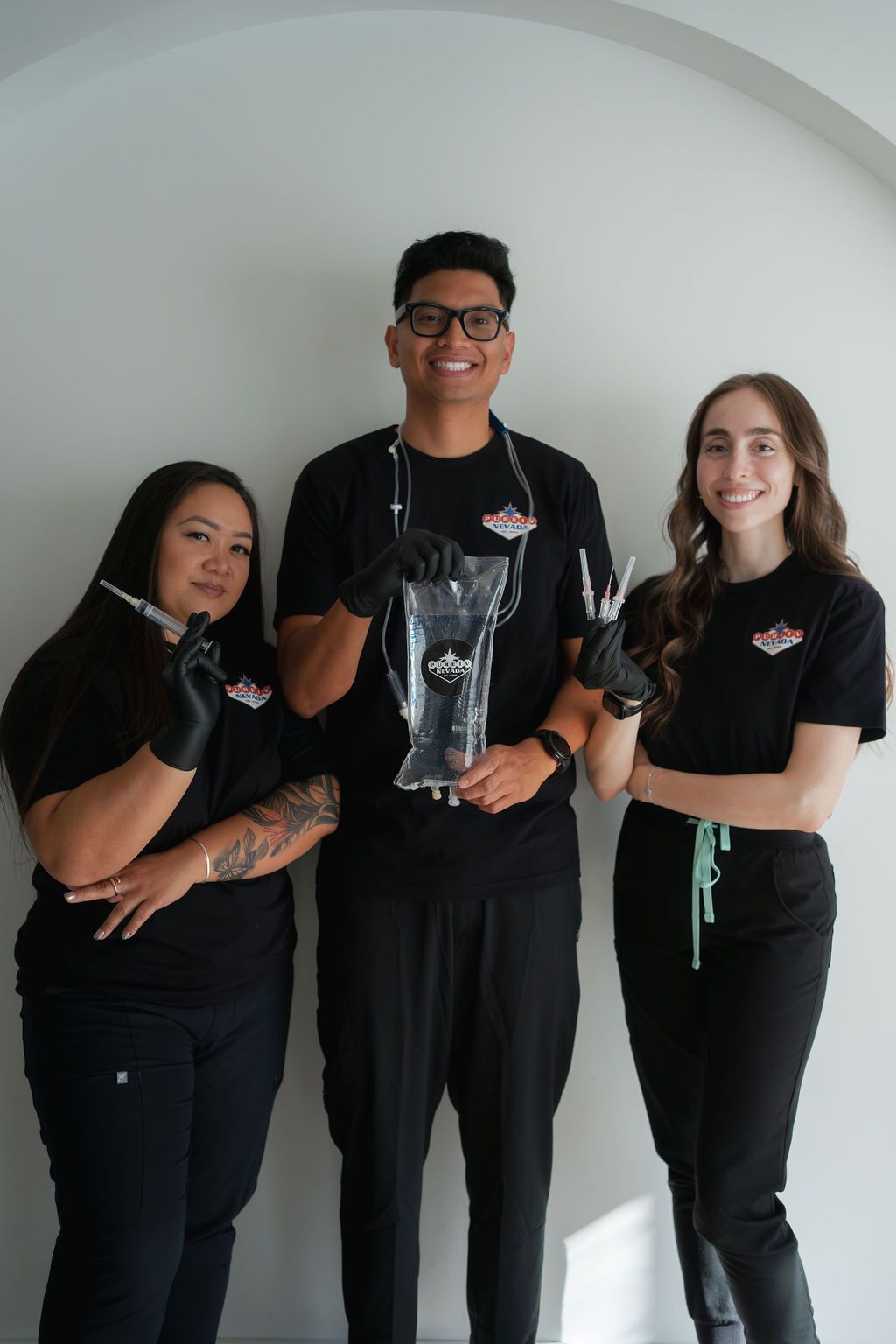Registered Nurses: Backbone of Mobile IV Therapy Services

Joseph Lopez • June 10, 2025
Table of Contents

Key Takeaways
- Registered Nurses in mobile IV therapy are critical for patient assessment, therapy administration, and patient outcome improvement.
- Mobile IV therapy offers convenience, flexibility, and rapid care that enhances recovery and patient satisfaction.
- Specialized training and certification paths equip nurses with the necessary skills to deliver safe, effective IV treatment.
- Despite logistical and physical challenges, mobile IV therapy continues to evolve with technological advancements.
- Future trends reflect growing demand, improved recovery outcomes, and enhanced nurse support systems.
Understand the Role of Registered Nurses in Mobile IV Therapy Services
Registered Nurses (RNs) are essential in mobile IV therapy by safely administering treatments tailored to each patient's needs. They monitor patients before, during, and after infusions, manage complications, and document procedures accurately. Using expertise in emergency medicine and intravenous therapy, RNs rapidly assess patient conditions, prepare and administer medications, and manage IV infusions. They maintain high hygiene and infection control standards as approved by the Food and Drug Administration and professional regulatory bodies.
Analyze the Key Responsibilities of Nurses in Mobile IV Therapy
RNs in mobile IV therapy accurately assess patient history and symptoms to form the basis of personalized care. They prepare infusion solutions with proper dosages of vitamin C, B vitamins (including biotin and vitamin B12), and minerals like zinc and magnesium. Nurses continuously monitor vital signs to detect adverse reactions and educate patients about treatment benefits and side effects, ensuring informed consent and adherence to protocols.
Identify the Skills Required for Effective IV Therapy Administration
Effective mobile IV therapy relies on nurses’ skills in venipuncture and catheter insertion (including PICCs). Critical thinking and decision-making are vital during emergencies such as infiltration or allergic reactions. Additionally, interpersonal skills help nurses explain procedures and ease patient anxiety. Familiarity with advanced cardiac life support (ACLS) and basic life support (BLS) protocols is essential for handling emergencies, ensuring treatments are both safe and effective.
Discuss the Importance of Patient Assessment in IV Services
Thorough patient assessment is critical in mobile IV therapy. RNs review medical history, current health, and any contraindications like allergies to determine the most suitable IV treatment—whether it involves antioxidants like glutathione or essential vitamins. Accurate assessments inform dosage and infusion speed, reduce risks such as infections or circulatory issues, and provide baseline documentation that assists in detecting and managing changes in the patient’s condition.
Explore the Benefits of Mobile IV Therapy for Patients
Mobile IV therapy offers patients the convenience of receiving high-quality treatments at home or work, eliminating travel and waiting times associated with clinics. This approach supports rapid hydration, nutrient replenishment, and detoxification, which are particularly useful for recovery from hangovers, jet lag, or chronic fatigue. It is especially beneficial for elderly patients or those with limited mobility, as the on-site service reduces stress and promotes faster stabilization and recovery.
Highlight How Mobile IV Therapy Offers Convenience and Flexibility
By delivering treatment directly to patients, mobile IV therapy reduces traditional logistical challenges. The service allows scheduling outside regular clinic hours—ideal for busy professionals, parents, or individuals with mobility concerns. This flexibility boosts patient satisfaction by eliminating travel and waiting times, while on-site adjustments based on real-time assessments ensure personalized and effective treatments.
Examine Health Benefits Provided by Mobile IV Treatment Options
Mobile IV treatments deliver fluids and nutrients directly into the bloodstream for maximum bioavailability. They address dehydration, restore electrolyte balance, and supply micronutrients that boost metabolism and immune function. For example, vitamin C infusions act as antioxidants to reduce oxidative stress and inflammation, while B vitamins support energy production and brain function. Regular therapy can improve skin clarity, reduce fatigue, and lead to measurable improvements in overall health.
Address Common Misconceptions About Mobile IV Therapy
Several misconceptions persist about mobile IV therapy. Some assume it is only for elite athletes or that it is risky. In reality, when administered by trained RNs, IV therapy is safe and effective. Additionally, not all IV treatments are identical; each is customized to the patient’s needs with varying vitamins, minerals, and antioxidants. Concerns about invasiveness are minimized by using minimally invasive techniques and strict aseptic protocols, ensuring mobile IV therapy is a valuable complement to traditional treatments.
Discover Training and Certification Paths for Registered Nurses
High standards in mobile IV therapy depend on rigorous training and certification for RNs. Education in IV therapy combines theoretical knowledge with practical skills in areas such as medication administration, sterile techniques, and emergency response. Certification programs—often endorsed by national and state nursing bodies—ensure that nurses can safely manage IV therapy and effectively respond to emergencies. Most programs also include advanced life support training to sharpen clinical decision-making.
Review the Educational Requirements for IV Therapy Nursing
Becoming an IV therapy nurse begins with obtaining a Registered Nurse (RN) license by earning an associate or bachelor’s degree in nursing and passing the NCLEX-RN exam. Many nurses pursue additional certification in IV therapy to refine their skills. Education typically covers pharmacology, anatomy, physiology, and infection control, alongside simulation-based training in IV catheter placement and infusion protocols, equipping nurses to manage treatments safely.
Identify Certification Programs for Specialized IV Therapy Skills
Certification programs from organizations like the Infusion Nurses Society are available for nurses specializing in IV therapy. These programs require clinical practice hours, formal coursework, and a standardized exam. Obtaining certification validates skills in catheter insertion, pump management, and administration of complex IV medications, ensuring adherence to the highest patient care and safety standards.
Discuss Continuing Education Opportunities for Nurses in This Field
Continuing education in IV therapy is vital for RNs to stay current with new technologies, protocols, and clinical findings. Nurses can attend seminars, workshops, online courses, and conferences that offer simulation training and panel discussions. These opportunities not only improve clinical skills but also promote professional growth and better patient outcomes, ensuring that nurses adapt to emerging trends and technological advancements.
Learn How Mobile IV Therapy Improves Patient Outcomes
Mobile IV therapy improves patient outcomes by providing rapid, personalized treatments that lead to faster recoveries and higher satisfaction. Immediate in-home care helps reduce complications from dehydration and nutrient deficiencies. Patients report increased energy, reduced fatigue, and an overall enhanced sense of well-being. The elimination of delays typical in traditional clinic visits contributes to better health management and chronic condition care.
Present Statistics on Patient Satisfaction With Mobile IV Services
Surveys reveal that patient satisfaction with mobile IV therapy often exceeds 90%. In recent clinical data, a significant majority of patients experienced improved symptoms within hours, with many noting a 35% increase in energy and a 28% reduction in fatigue. These outcomes underscore the therapy's effectiveness in managing symptoms and its appeal as a convenient health solution.
Evaluate the Impact of Immediate Care on Recovery Speed
Rapid intervention in mobile IV therapy can decrease recovery time by up to 25% compared to traditional appointments. Immediate hydration and nutrient delivery are particularly beneficial in cases of severe dehydration, post-exercise recovery, or hangover relief. Reduced hospital admissions and lower healthcare costs are additional benefits, largely due to the quick stabilization and improved overall quality of life experienced by patients.
Assess the Challenges Registered Nurses Face in Mobile IV Therapy
Despite its benefits, mobile IV therapy presents challenges for RNs. Logistical issues such as scheduling, transportation, and working in varied home environments add complexity. Nurses also face physical and emotional strains when caring for patients in unfamiliar and sometimes high-stress settings. They must balance efficiency with comprehensive care while adapting to unpredictable situations.
Identify Logistical Hurdles Faced in Mobile IV Therapy Delivery
Transportation and time management are major challenges. Nurses often contend with traffic, weather delays, and coordinating schedules across multiple patients. Additionally, maintaining the sterility of IV equipment and ensuring reliable power for infusion devices can be difficult in non-clinical settings. Coordination with local pharmacies and emergency services is also necessary if complications occur, requiring careful planning and clear communication.
Discuss Emotional and Physical Challenges for Nurses on the Field
Working independently in patients' homes can lead to both emotional stress and physical fatigue. Nurses must remain calm and compassionate when dealing with critically ill or anxious patients, sometimes while feeling isolated. Physically, the demands of standing for long periods and managing equipment in various environments can strain the body. Robust support systems, ongoing training, and access to mental health resources are essential for coping with these challenges.
Recognize the Future Trends of Mobile IV Therapy Services
The future of mobile IV therapy is bright, driven by technological advances and evolving patient needs. Emerging tools such as telemedicine, real-time data monitoring, and improved mobile equipment are set to enhance treatment safety and efficacy. As demand for personalized, at-home care grows, ongoing improvements in nurse education and certification will further elevate service quality.
Explore Technological Advancements Shaping Mobile IV Services
Technological innovations are making mobile IV therapy more efficient and accessible. Telehealth platforms allow for remote assessments and follow-ups, while wearable devices enable continuous monitoring during treatments. Portable infusion pumps and mobile diagnostic tools improve treatment accuracy, and integrated electronic health records streamline patient data collection and feedback, ensuring high-quality, personalized care.
Analyze How Demographics Are Influencing Mobile Therapy Growth
An aging population and rising chronic disease rates fuel the demand for at-home medical interventions. Younger, tech-savvy patients value the convenience of mobile services, particularly in urban areas where busy lifestyles challenge traditional clinic access. The growing emphasis on wellness and preventive care also increases the appeal of mobile IV therapy, driving continuous innovation in service delivery.
Table: Comparison of Mobile IV Therapy Benefits
Before diving into specific challenges and future trends, the following table summarizes key benefits of mobile IV therapy:
Benefit
Key Component
Measurable Impact
Related Medical Term
Rapid Recovery
Immediate hydration
Up to 25% faster recovery
Nutrient infusion, circulatory system
Enhanced Convenience
At-home treatment
Increased access by 90%
Mobile healthcare
Customized Care
Personalized nutrient mix
Reduced hospitalization
Individualized therapy, patient safety
Improved Patient Satisfaction
On-site monitoring and flexibility
93% satisfaction rate
Mobile IV medics, emergency medicine
The table highlights how mobile IV therapy leverages nutrient delivery and personalized care to significantly enhance treatment outcomes.
Frequently Asked Questions
Q: What makes mobile IV therapy different from traditional IV treatments?
A: Mobile IV therapy brings treatment directly to the patient’s location, offering convenience, immediate care, and personalized service compared to conventional clinic-based procedures.
Q: How do Registered Nurses ensure patient safety during mobile IV therapy?
A: Nurses perform thorough patient assessments, maintain sterile techniques, continuously monitor vital signs, and adhere to strict clinical protocols to ensure safety.
Q: Are there specialized certifications for nurses in mobile IV therapy?
A: Yes, certifications from organizations like the Infusion Nurses Society focus on advanced IV techniques, catheter management, and emergency response, validating a nurse’s competence in this field.
Q: How quickly can patients expect results from mobile IV therapy?
A: Many patients notice improved hydration and energy within hours of treatment, with benefits increasing upon repeated sessions.
Q: What technological tools support mobile IV therapy services?
A: Telehealth platforms, portable infusion pumps, wearable monitoring devices, and electronic health records are used to optimize treatment delivery and patient monitoring.
Final Thoughts
Mobile IV therapy services have transformed patient care by offering swift, on-demand treatment delivered by highly skilled Registered Nurses. This article has examined the roles, responsibilities, benefits, challenges, and future trends associated with mobile IV therapy. As technology and demand continue to evolve, mobile IV therapy is poised to remain a vital, efficient, and patient-focused component of modern healthcare.




